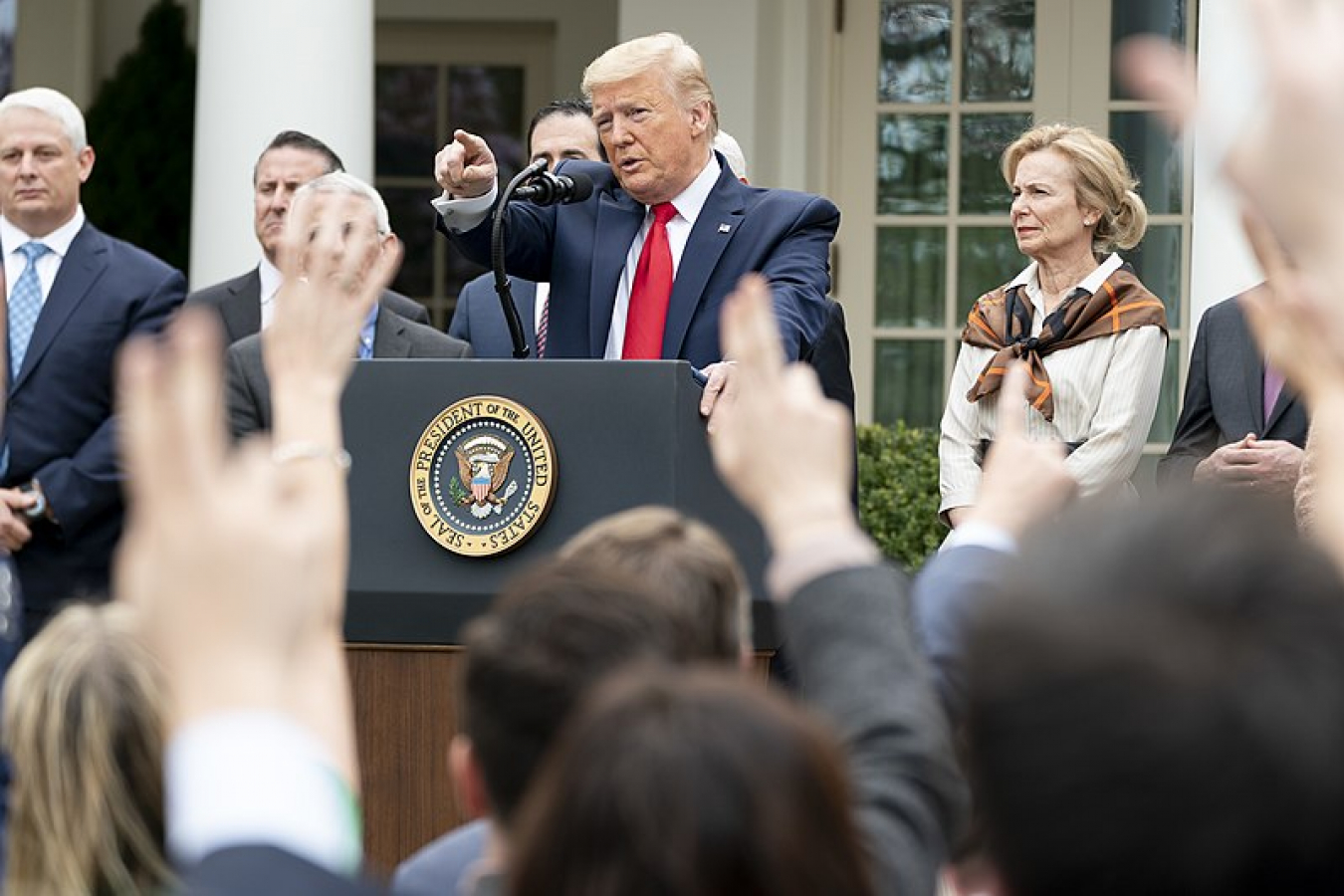
The US President Donald Trump has decided to extend the ban on issuing of H-1B and other work permit visas like H-2B and certain categories of H-4, J-1, and L-1 visas until the end of 2020.
The US had banned the entry of foreign workers in the country in the last week of April for a period of 60 days. The recent decision extends the ban.
H-1B, H-2B, L-4, J-1, and L-1 are non-immigrant (temporary visas) issued to foreigners to work in the United States.
- H-1Bs visas are for workers in specialty occupations requiring expertise like IT. Tech companies use it to hire workers from India and China.
- H-2Bs are for food and agricultural workers
- H-4s are for spouses of H-1B holders
- J-1s are for visitors participating in cultural, work exchanges
- L-1s are to allow companies to transfer highly-skilled workers to the US. Eg- If Infosys wants to transfer one of its employees from Bangalore to its US branch.
[You may also read- The trade war between the US and China]
This extension of the ban on certain work visas was done to combat the high levels of unemployment in the US amidst the coronavirus pandemic.
Additionally, the Trump administration also changed the H-1B visa norms so as to prevent cheap labor from India and China into the country. Previously, these visas were allotted on a lottery basis to the applicants. Now, the US will favor highly skilled workers who are paid the highest wages by their respective companies.
[In 2017, the US had passed a legislation to increase the minimum annual salary of H-1B visa holders to $90,000 from $60,000.]
H-1B visa is popular amongst Indian IT professionals. IT companies want to hire Indians and Chinese as they are willing to work at relatively lower salaries. Therefore, the decision to suspend this visa could crush the ‘great American dream’ of many Indian IT professionals. Sample this
As of April 1, 2020, the US Citizenship and Immigration Services (USCIS) had received about 2.5 lakh H-1B work visa applications, according to official data. Indians had applied for as many as 1.84 lakh, or 67 per cent of the total H-1B work visas
Hence, this move will disproportionately impact Indians.
As mentioned, these visas are temporary in nature. H1-B visas are approved for a period of 3 years, but workers extend their stay by switching their employers.
This decision will also harm American businesses relying on immigrants. It will prevent them from access to global talent. It will impact Indian businesses in the US as well but Indian companies have been reducing their dependence on visas by hiring more employees locally. To put things in perspective-
Wipro Ltd, Infosys Ltd, Tata Consultancy Services (TCS) Ltd, Cognizant and HCL (Witch group) cumulatively had less than 5,200 H-1B approvals in fiscal 2019, compared to 23,000 in FY13, as they hired more people locally.
On the other hand, according to data from US Citizenship & Immigration Services, Google, Amazon, Apple, Facebook, and IBM were among the top 10 recipients of new H1-B visas in 2019 fiscal year.
Some analysts have said that the ban is short-sighted in nature, as it will prove counterproductive to the recovery of GDP growth in the US from the effects of the pandemic.
Immigrants, roughly 15 percent of the U.S. population, are responsible for about a quarter of U.S. start-ups and patents each year, and that percentage has been increasing for decades. Moreover, through a number of different measures, we now know, too, that employment growth is faster for businesses started by immigrant entrepreneurs as opposed to those launched by the native-born over three- and six-year horizons.
//www.washingtonpost.com/
That said, all is not lost for the Indian IT professionals. The ban on H-1B and L-1 visas is likely to benefit the Indian offshoring industry. This is because the US companies might outsource more of their operations to India or expand their global in-house centers (GICs) in the country to take advantage of cheaper costs and availability of talent.
“The technology market in the US is heavily dependent on the H1-B visa. With the ban being imposed, GICs will definitely try to make up for the talent shortage by hiring more locally in India,” said Harish Pillai, director and country head, Randstad Sourceright India, a talent management solution provider.
//www.livemint.com
Further, the novel coronavirus pandemic has reinforced the credibility and relevance of the offshore delivery model with remote working implemented at a large scale. TCS, Wipro, Infosys, Tech Mahindra, and HCL Tech are already seeing a steady rise in offshoring business.
Economyria is now on Telegram. For a simplified analysis of topics related to economy/ business/ finance, subscribe to Economyria on Telegram
Other articles from Economyria that you may read-